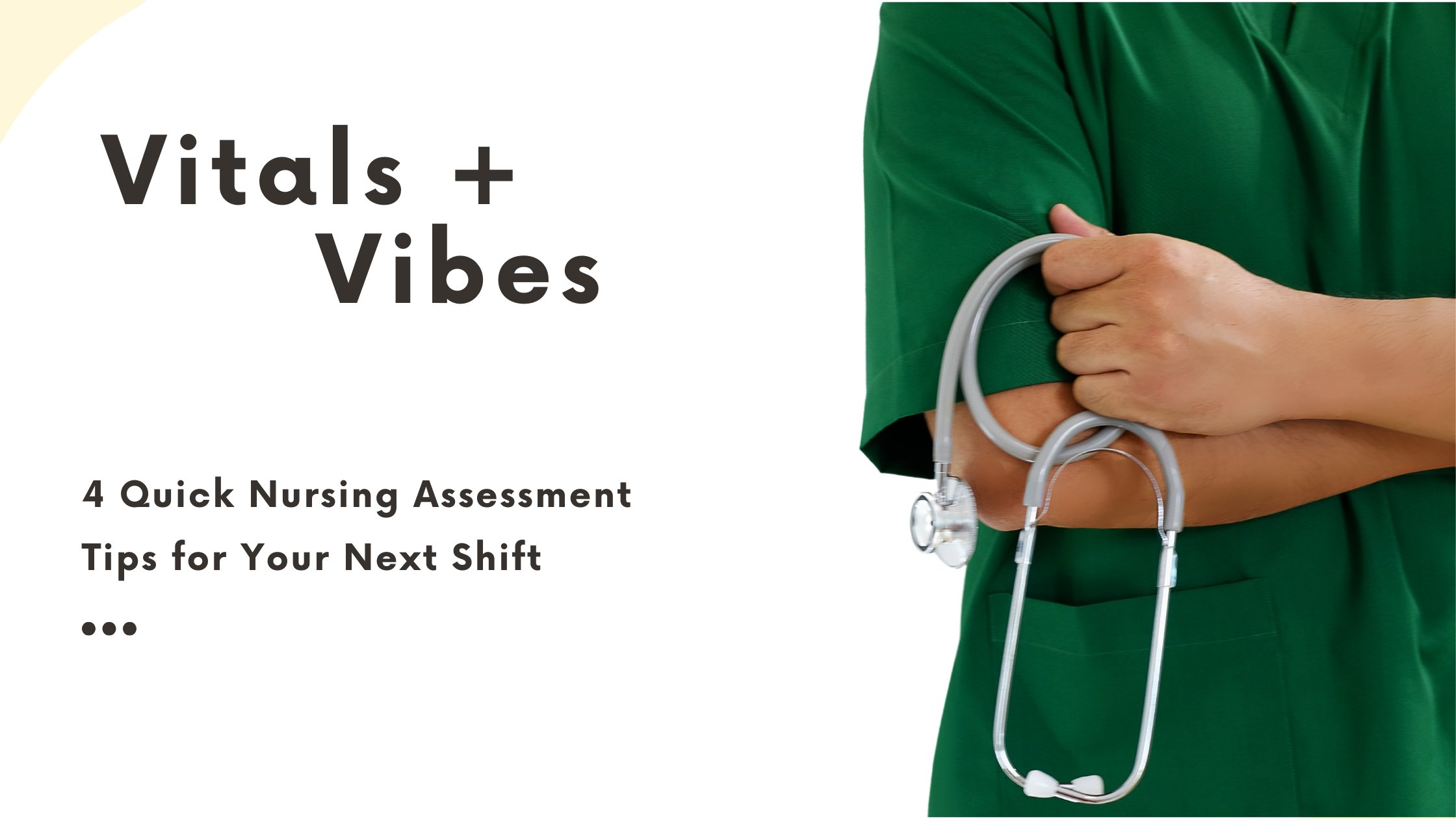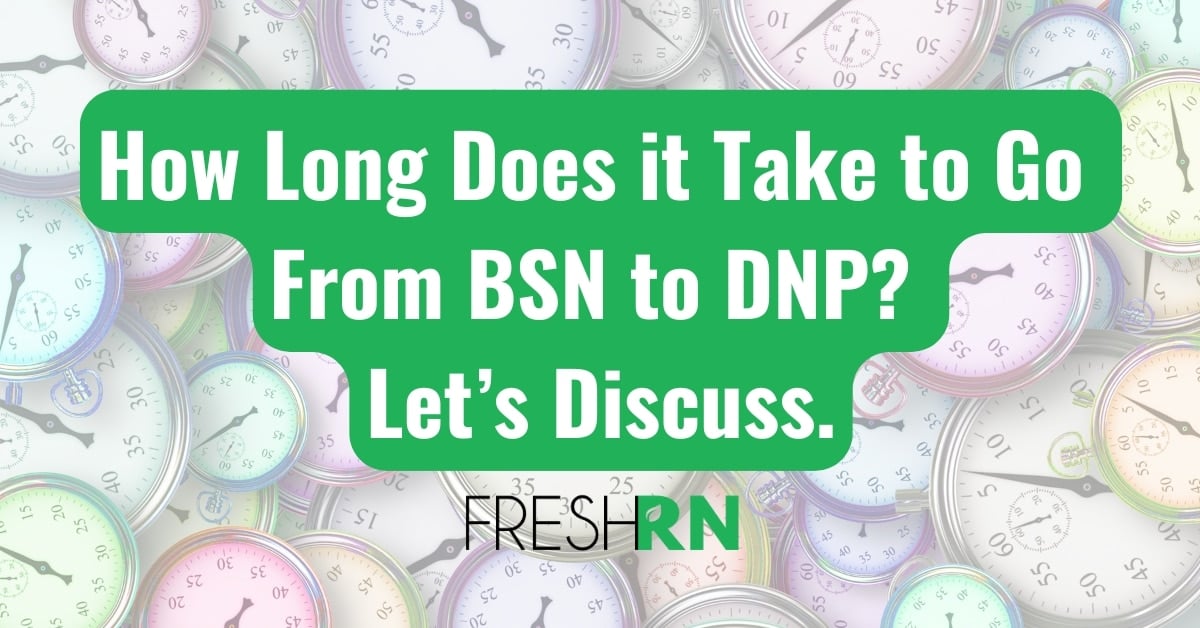Let’s talk about something that doesn’t show up on your task list, but drains you faster than running back-to-back admissions: the constant stream of requests coming at you from every direction.
From the moment you clock in, it’s on:
- Can you grab me a blanket?
- Can you take the next admit?
- Can you call pharmacy for me?
- Will you float for four hours?
- Will you watch my patients while I go on lunch?
- Can you stay late again?
It’s constant. And if you’re like many nurses (especially early on in your career), your knee-jerk response is to say yes.
- “Of course!”
- “No problem!”
- “I got it!”
Even when we’re running on fumes.
Saying no in the middle of a busy shift, to people you care about or respect, feels SO uncomfortable.
But here’s the truth: constantly saying yes when your body, mind, and calendar are saying no doesn’t make you a better nurse… it makes you a burnt-out one.
Why Saying No Feels So Hard
That awkward pause after you decline a request? It’s rough. Especially if your self-worth is tied to being helpful, needed, or well-liked.
I used to feel like saying no meant I wasn’t a team player—or worse, that I was letting people down. I’d buffer every “no” with a sorry, a long explanation, or an offer to make it up later. But learning to say no—clearly, kindly, and confidently—has been one of the most freeing skills I’ve developed in my nursing career.
But it didn’t happen overnight.
Practical Ways to Say No Right Now
Since personal growth takes time (and let’s face it, you probably need something you can use today), here are some quick, no-drama responses you can use in the moment:
🧠 “I’m not available to stay after.”
🧠 “I can’t work extra.”
🧠 “I can’t switch shifts.”
🧠 “I’ve got another commitment.”
🧠 “I’m unavailable.”
Short. Clear. No apologies.
Before, I’d read responses like this and feel the need to add in an excuse, a sorry, or a thank you. I just wanted to buffer the “No” a bit. 😣 If this sounds like you, here are my words of encouragement:
Remember This When You’re Struggling to Say No
✨ You don’t owe anyone an explanation for why you’re protecting your time.
✨ Your mental wellness is not a luxury—it’s a necessity.
✨ Not sure if it’s a yes? Ask: “Is this a HECK YES for me?” If not, it’s a no.
✨ That 5 seconds of awkward after saying no? Worth it. Resentment lasts way longer.
✨ Feel the emotional tug and discomfort, sit with it, and let it pass. Then move on with your day.
It’s okay to feel that little pull—the part of you that wants to say yes. You’re a caring, team-oriented person! That’s a beautiful thing. But part of caring includes caring for yourself.
Letting Go of People-Pleasing (And Still Being a Great Nurse)
Saying no doesn’t make you selfish, it makes you self-aware. It means you understand your limits and are taking responsibility for your well-being. You can absolutely be a team player and still have boundaries. In fact, you’re a better nurse when you do. Why? Because you’re showing up rested, grounded, and present—not overextended and emotionally fried.
And here’s what usually happens when you say no: they ask someone else, they move on, and by the end of the shift, it’s already forgotten. The world keeps turning. The truth is, people who respect their own boundaries will typically respect yours too. And those who don’t? More often than not, they’re struggling with healthy boundaries themselves.
Saying No Is Self-Care
When we talk about nurse self-care, we often imagine massages or long weekends off. But the truth? It starts with small, firm no’s.
- No, I can’t stay late.
- No, I won’t take a fifth patient.
- No, I’m not picking up an extra shift this week.
If you’re feeling overwhelmed by the constant demands of this job, start there. It might feel weird at first—but over time, it gets easier. Stronger. Empowering, even.
So here’s your permission slip: Be brave. Be clear. Be unapologetic.
You deserve that. And your patients deserve a nurse who isn’t running on empty. And your future self? They’ll thank you one day for this boundary-setting courage. Stay well, my nurse friend. Truly.
Until next time,
Kati 🪴
Learn what a clinical nurse consultant does, how to become one, and what skills are essential to thrive. We sat down with Kristine Shepherd, MSN, RN, for the full scoop.
Continue Reading What Is a Clinical Nurse Consultant? A Behind-the-Scenes Look at This Growing Role
Streamline your nursing assessments with real-life tips to help you stay efficient and confident (even when your shift is chaos). Perfect for new grads finding their flow!
Continue Reading 4 Quick Nursing Assessment Tips for Your Next Shift
What does a “medical surgery nurse” do? Learn the correct spelling of “med-surg,” what it’s like to work on a medical-surgical unit, and why it’s one of the most important specialties in nursing.
Continue Reading Curious About a “Medical Surgery Nurse”? Let’s Talk Med-Surg
How long does it take to go from BSN to DNP? Let’s talk what affects the timeline, and how BSN to DNP programs compare to other nurse practitioner paths. Plus tips for choosing the right program.
Continue Reading How Long Does it Take to Go From BSN to DNP? Let’s Discuss.
The Adult Gero NP role focuses on caring for adults across the lifespan, including older adults. This guide breaks down what AGNPs do, how they compare to other NP specialties, and what it takes to earn your AGNP degree and certification.
Continue Reading So You Wanna Be an Adult Gero NP? Here’s What to Know First
Want to get a nursing informatics degree online? Let’s break down what your options are, and how to choose a path that aligns with your personality and career goals.
Continue Reading Nursing Informatics Degree Online: Everything to Know Before You Enroll
Want to stop feeling like an imposter in your first nursing job?

Your first nursing job is a huge milestone—but let’s be real, it can also be terrifying.
You’re expected to know so much, so fast—but what if you had a solid foundation before you even stepped onto the floor?
The FreshRN® New Nurse Master Class is the course we wish we had. It’s packed with the practical, real-world guidance
you need to feel more capable, confident, and in control.
From clinical skills and critical thinking, to time management
and self-care, this course covers everything they don’t teach you in nursing school—so you can feel ready, not just hope you are.
Start Lesson #1 Now








0 Comments